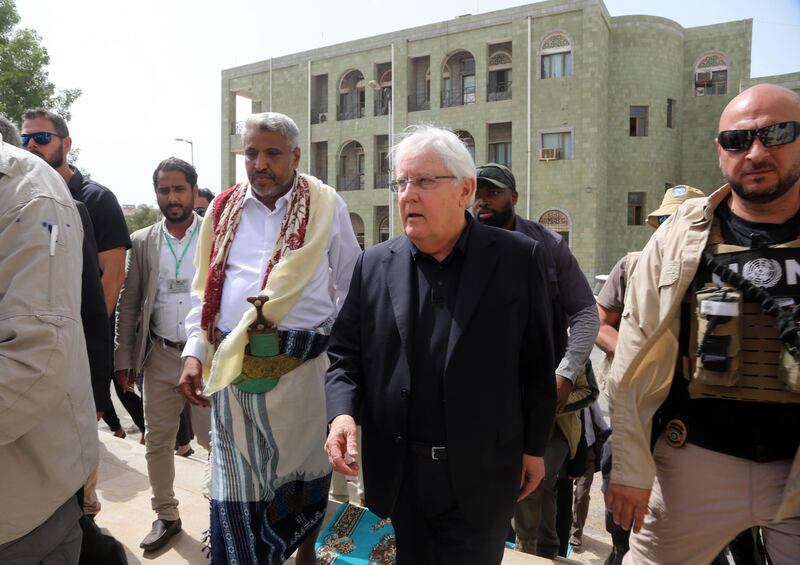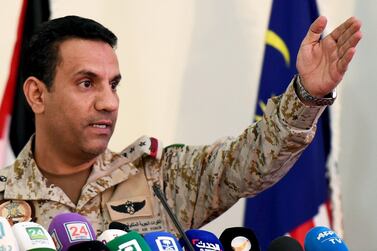The newly-appointed head of a UN team sent to monitor a truce in Yemen’s Hodeidah has called for international forces to manage isolated areas in the city and for the opening of safe corridors in an attempt to salvage a December peace deal reached in Sweden.
On Saturday, Danish General Michael Lollesgaard suggested to General Abdullah Al Nakhai, the Yemeni army's chief of staff, the facilitation of a humanitarian corridor to allow the delivery of aid to assist millions of Yemenis facing starvation.
"The government is ready to implement the plan suggested by the general, it stipulates that representatives from the government and Houthi rebels would set up the passage and to allow international forces to govern it," a Yemeni government official told The National.
Yemen’s internationally recognised government and Houthi rebels agreed to a ceasefire deal that includes the withdrawal of their respected forces from the port city during peace talks in Sweden last December.
The fragile truce in Hodeidah has largely held, according to the UN, but things could take a turn for the worse if the Stockholm agreement collapses.
The general's task will be to deploy the people he needs for his mission including a team of up to 75 monitors, according to a report published on Sunday by the International Crisis Group.
"Beyond logistical constraints this will also require the Houthis to show more flexibility on visas and movement around Hodeidah than have done to date,” the report said.
General Lollesgaard is currently awaiting the rebel's approval.
The Red Sea port of Hodeidah is a vital entry point for Yemen’s imported goods and humanitarian aid, which is considered a lifeline for millions of civilians.
The development comes as UN special envoy to Yemen, Martin Griffiths, is expected to arrive to Sanaa on Sunday to meet with Houthis leaders.
"Mr Griffiths will discuss the Hodeidah deal as well as the outstanding issues on the prisoner exchange agreement," a UN official told The National.
During prisoner exchange talks held in Jordan, representatives of the two sides submitted lists of the detainees they each want to see freed, but deep distrust has prevented them from coming up with a final list of names for the swap.
The deal has stalled because each side seeks the release of more prisoners than the other claims to be holding.
Representatives have said they have "made progress" and would now consult with their leaders.
At the end of January, the rebels released a captured Saudi soldier while Riyadh set free seven Houthi prisoners, but they are the only detainees exchanged under the deal so far.







